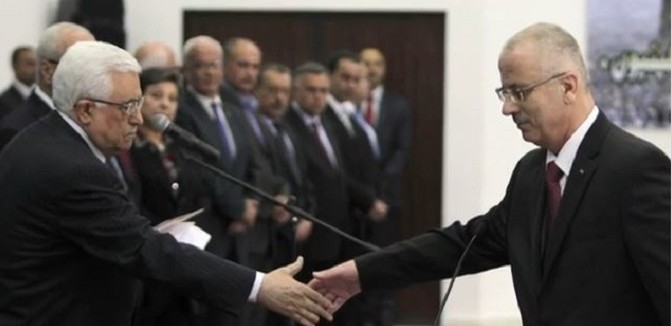Last week Palestinian Authority (PA) prime minister Rami Hamdallah angrily tendered his resignation and then reportedly withdrew it. Apparently those reports were premature:
He offered his resignation on Thursday because of a “conflict over authority” within his cabinet, government sources said, but withdrew it the next day… Mr Hamdallah’s resignation leaves the Palestinian Authority in a state of disorder as it struggles to deal with a financial crisis, the BBC’s Yolande Knell in Ramallah reports.
Hamdallah had been in power less than a month, and explained his departure as the result of a power struggle between himself and Abbas loyalists. He had been installed after his predecessor, Salam Fayyad, was maneuvered out of office by Abbas, also amid a power struggle. The New York Times noted tersely that the incident bodes ill for Palestinian political stability:
The latest power struggles in the West Bank, where the Palestinian Authority exercises limited self-rule, deepened the image of political disarray, days before Secretary of State John Kerry was expected back in the region to try to revive peace talks with Israel… “It is not a question of who the prime minister is,” Mr. Abdul Hadi said, “but of where the Palestinian Authority is heading.”
U.S. analysts expressed similar pessimism:
The brief premiership of Hamdallah underscores the fact that the Palestinian Authority is suffering from chronic instability. This could weigh heavily on the PA’s ability to conduct diplomacy and raise funds from donor countries. Abbas will need to move quickly if he wishes to project stability. Hamdallah’s resignation also makes it clear that, even in the post-Fayyad era, the need for improved Palestinian governance is an issue that will not go away.
Hamdallah will lead a caretaker government until August 10th. Some observers have suggested that a government unable to maintain a prime minister for more than three weeks may lack sufficiently robust political institutions to sustain a viable state.
[Photo: AFP / Youtube]




